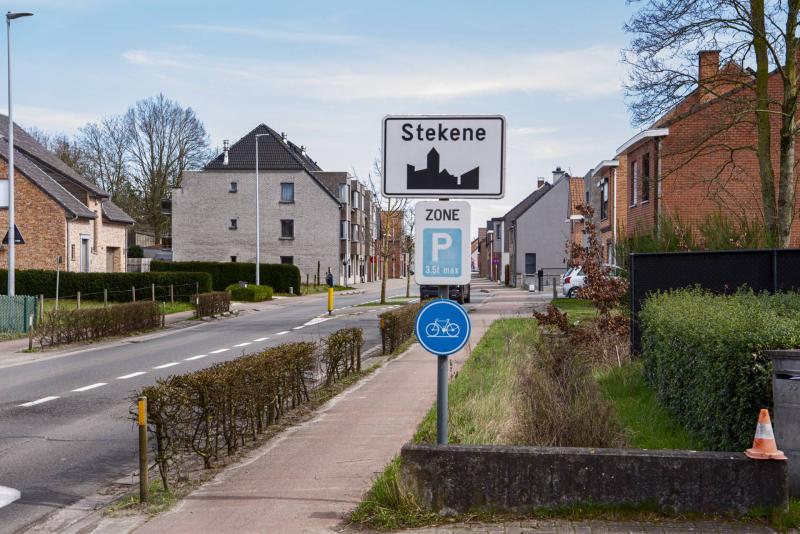With the grant 'Local Media for Democracy' Apache will create and sustain a local investigative journalism structure embedded in the newsroom. A coordinator will be recruited and a network of local investigative journalists will be formed. As part of this project, Apache will also set up one participatory investigation that will serve as a blueprint for future local investigations.
Target group
The target group of the project 'Apache Lokaal' are the inhabitants of rural areas, towns, and smaller cities in Flanders, Belgium. These residents can't find credible and comprehensive investigations in the traditional media they use because those media don't invest in local investigative journalism. The inhabitants thus don't receive quality information and investigations on social and political local questions. This has an impact on democracy and on the debate on a local level.
Goals of the project
- Create a local investigative journalism news desk in the newsroom.
- Attract a part time coordinator to set up the news desk, and in a later stadium run it.
- Experiment with one local investigation, that should contribute a blueprint for future local investigative projects.
About the media outlet
Apache is a Belgian platform for investigative journalism, in depth reporting and analysis. It was founded in 2009 and is backed by a cooperative whose owners are readers, journalists and sympathisers. Apache publishes investigations on its website Apache.be and in its quarterly magazine called Apache Magazine. It has 5.500 digital subscribers and 1.500 magazine subscribers. The website is visited by 80.000 persons monthly.
The editorial team of Apache investigates a broad range of topics, ranging from politics, over real estate and business interests to social affairs. Local issues in Flanders, Belgium are also an important subject of investigation. The core team of Apache counts 8 investigative journalists, with a diverse mix of junior and senior journalists. Apache works also with a broad range of freelancers and has an extensive network of experts.
Implemented activities
They explored the news deserts in Flanders, Belgium, and selected a region where they could do an investigation. They contacted different local journalists and worked on a possible collaboration. They organized a pitch session in the municipality of Stekene (Oost-Vlaanderen, Belgium). This pitch session, together with their own research, gave them some leads for investigations. They organized an investigation and experimented with the possibilities of FOIA. After publication, they organized a final webinar focused on Stekene. Inhabitants were invited to listen and to give new leads for future investigations.
Impact addressing news deserts
Their investigation had an impact and was the talk of the town in the municipality covered. We experienced that a very hyperlocal investigation can work. That is a very important (and positive) lesson learned. Unfortunately, six months is too short to change a newsroom.
Stekene, where politicians have a stake in real estate
Apache.be, the Belgian platform for investigative journalism, exposes conflicts of interest that transform a rural Flemish village where all seems peaceful.
Deep in the Waasland, in the northeast of the Belgian province Oost-Vlaanderen, a village is urbanizing rapidly. The gradual transformation of Stekene raises questions at the municipal council and from worried residents. But the rural village is a rather blind spot for private media (as a Flemish Media Regulator map demonstrates) so the problem rarely makes headlines.
In 2021, a Flemish government audit concluded that the process for issuing building permits has quite a few shortcomings. Have things changed since then? On paper, all recommendations have been implemented.
An analysis of the overturned decisions by higher authorities and judgments by administrative courts over the past three years shows that there are still serious problems. Advice is routinely ignored and decisions are taken unlawfully (sometimes several times). The choice for large-scale construction projects exceeds the spatial capacity of the village. The regulations are very limited and leave room for exceptions.
The council of Aldermen is well acquainted with the real estate world. A mayor who is responsible for spatial planning is also a real estate agent. Two former aldermen develop their own projects. Planning permission for these is not issued “by the book”.
This local investigative journalism project is based on dozens of documents that were requested through open government legislation and conversations with those involved. The method can serve as a blueprint to be applied in other municipalities.
The article will be published on the Apache.be website on Tuesday 26 March 2024.
The publication invites residents to debate and also calls on citizens from other municipalities to discuss the theme with Apache journalists.


